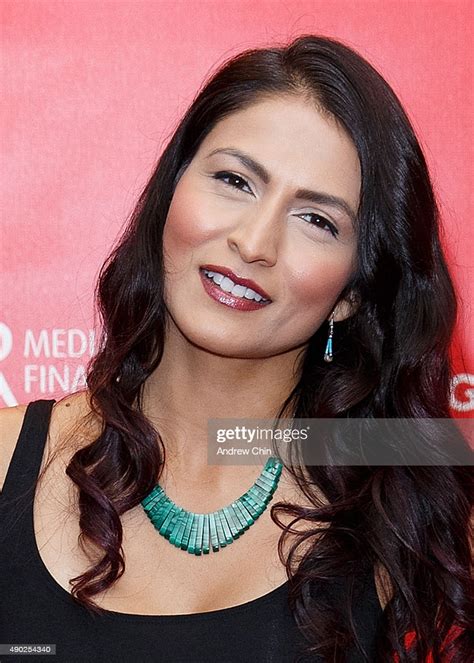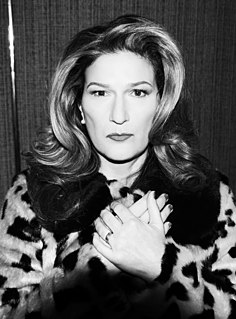A Quote by Becca Fitzpatrick
She shrieked. "Nora! What happened to the banister!" Good thing she hadn't seen her bedroom yet.
Related Quotes
At that moment a very good thing was happening to her. Four good things had happened to her, in fact, since she came to Misselthwaite Manor. She had felt as if she had understood a robin and that he had understood her; she had run in the wind until her blood had grown warm; she had been healthily hungry for the first time in her life; and she had found out what it was to be sorry for someone.
She came into a room; she stood, as he had often seen her, in a doorway with lots of people round her. But it was Clarissa one remembered. Not that she was striking; not beautiful at all; there was nothing picturesque about her; she never said anything specially clever; there she was however; there she was.
At night, the house thick with sleep, she would peer out her bedroom window at the trees and sky and feel the presence of a mystery. Some possibility that included her--separate from her present life and without its limitations. A secret. Riding in the car with her father, she would look out at other cars full of people she'd never seen, any one of whom she might someday meet and love, and would feel the world holding her making its secret plans.
She was in a terrible marriage and she couldn't talk to anyone. He used to hit her, and in the beginning she told him that if it ever happened again, she would leave him. He swore that it wouldn't and she believed him. But it only got worse after that, like when his dinner was cold, or when she mentioned that she'd visited with one of the neighbors who was walking by with his dog. She just chatted with him, but that night, her husband threw her into a mirror.
I study her,” Patch said. “I figure out what she’s thinking and feeling. She’s not going to come right out and tell me, which is why I have to pay attention. Does she turn her body toward mine? Does she hold my eyes, then look away? Does she bite her lip and play with her hair, the way Nora is doing right now?” Laughter rose in the room. I dropped my hands to my lap. “She’s game,” said Patch, bumping my leg again. Of all things, I blushed.
I say, 'Yeah, Taylor Swift.' I think she is a smart, beautiful girl. I think she's making all the right moves. She's got a good head on her shoulders. She's surrounded with wonderful people. Her songs are great. She keeps herself anchored. She knows who she is, and she's living and standing by that.
I met this girl who had a huge scar on her leg from a car accident. She was talking about how, after it first happened, she would always wear long pants and cover it up. But, as she started to grow into it, she decided that that's just her now. It's just a part of who she is. She wears skirts and she shows it off now.
Because of course she had known she must go. She always did the thing because in obedience lay the integrity that God asked of her. If anyone had asked her what she meant by integrity she would not have been able to tell them but she had seen it once like a picture in her mind, a root going down into the earth and drinking deeply there. No one was really alive without that root.
She was the first person on either side of her family to go to college, and she held herself to insanely high standards. She worried a lot about whether she was good enough. It was surprising to see how relieved she seemed whenever I told her how amazing she was. I wanted her to feel strong and free. She was beautiful when she was free.
For a moment she turned in a circle, staring at her hands, which she held high and useless, close to her breast. She bobbed and shambled like an ape doing a trick, and her face was the silly, bewildered face of a joker's victim. And yet she could make no move that was not beautiful. Her trapped terror was more lovely than any joy that Molly had ever seen, and that was the most terrible thing about it.
She was beautiful, but not like those girls in the magazines. She was beautiful, for the way she thought. She was beautiful, for the sparkle in her eyes when she talked about something she loved. She was beautiful, for her ability to make other people smile, even if she was sad. No, she wasn't beautiful for something as temporary as her looks. She was beautiful, deep down to her soul. She is beautiful.
[Keeping kosher was] the symbol of an initiation, like the insignia of a secret brotherhood, that set her apart and gave her freedom and dignity. Every law whose yoke she accepted willingly seemed to add to her freedom: she herself had chosen . . . To enter that brotherhood. Her Judaism was no longer a stigma, a meaningless accident of birth from which she could escape . . . It had become a distinction, the essence of her self-hood, what she was, what she wanted to be, not merely what she happened to be.
































